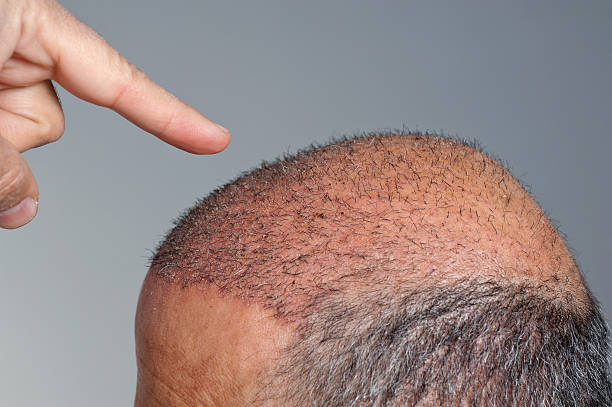Scalp Psoriasis: Early Signs, Triggers, and What to Watch For
Scalp psoriasis often begins subtly — with mild flaking, irritation, or redness that’s easy to dismiss as simple dandruff. But early signs like these can be the first indicators of a chronic skin condition. In this guide, we’ll explore the most common triggers of scalp psoriasis, what the early signs actually look like, and what actions can help manage symptoms early — especially for seniors or those already living with psoriasis elsewhere on the body

What does scalp psoriasis look like in its early stages?
In its early stages, scalp psoriasis can be easily mistaken for dandruff or dry skin. The initial signs often include:
-
Mild flaking or scaling of the scalp
-
Slight redness or irritation
-
Itching or burning sensations
-
Small, raised patches of skin
-
Silvery-white scales on reddened areas
These symptoms may appear gradually and can be localized to specific areas of the scalp. As the condition progresses, the affected areas may expand, and the symptoms can become more pronounced.
What are the common triggers of scalp psoriasis flare-ups?
Several factors can trigger or exacerbate scalp psoriasis flare-ups:
-
Stress: Emotional stress is a well-known trigger for many psoriasis patients.
-
Climate: Cold, dry weather can worsen symptoms, while humidity and sunlight may offer relief.
-
Infections: Strep throat and other infections can trigger psoriasis in some individuals.
-
Skin injuries: Cuts, scrapes, or severe sunburns can lead to new psoriasis patches.
-
Certain medications: Beta-blockers, lithium, and antimalarial drugs may trigger flare-ups.
-
Alcohol and smoking: Both can increase the risk and severity of psoriasis symptoms.
-
Hormonal changes: Puberty, pregnancy, and menopause can affect psoriasis symptoms.
Understanding these triggers can help individuals better manage their condition and reduce the frequency of flare-ups.
How can you recognize scalp psoriasis vs. dandruff?
While both conditions can cause flaking and itching of the scalp, there are key differences:
Scalp Psoriasis:
-
Presents as raised, red patches with silvery-white scales
-
Can extend beyond the hairline onto the forehead, neck, or ears
-
May cause thickening of the scalp in affected areas
-
Often accompanied by psoriasis on other parts of the body
-
Can lead to temporary hair loss in severe cases
Dandruff:
-
Appears as white or yellowish flakes without raised patches
-
Usually confined to the scalp area
-
Does not cause thickening of the skin
-
Not associated with other skin conditions
-
Rarely causes hair loss
If you’re unsure which condition you’re dealing with, it’s best to consult a dermatologist for an accurate diagnosis.
What are the best treatment approaches for seniors with head psoriasis?
Seniors with scalp psoriasis require special consideration due to potential age-related factors:
-
Topical treatments: Corticosteroid creams or ointments can reduce inflammation and itching. Look for formulations suitable for sensitive skin.
-
Medicated shampoos: Those containing salicylic acid or coal tar can help manage symptoms. Use gentle, fragrance-free options to avoid irritation.
-
Phototherapy: Controlled exposure to UVB light can slow skin cell growth. This treatment should be administered by a healthcare professional.
-
Systemic medications: For severe cases, oral or injectable medications may be prescribed. These require careful monitoring due to potential side effects.
-
Moisturizing: Regular use of scalp moisturizers can help reduce scaling and itching.
-
Lifestyle modifications: Stress reduction techniques, a balanced diet, and gentle hair care practices can support overall management.
It’s crucial for seniors to work closely with their healthcare providers to find the most effective and safe treatment plan, considering any other health conditions or medications.
How do treatment costs compare for different scalp psoriasis options?
Treatment costs for scalp psoriasis can vary widely depending on the severity of the condition and the chosen treatment approach. Here’s a general comparison of common treatment options:
| Treatment Type | Provider/Product | Estimated Cost Range |
|---|---|---|
| Over-the-counter shampoos | Various brands (e.g., Neutrogena T/Gel, Head & Shoulders Clinical Strength) | $10 - $30 per bottle |
| Prescription topical treatments | Pharmaceutical companies (e.g., Taclonex, Dovonex) | $100 - $500 per prescription |
| Phototherapy sessions | Dermatology clinics | $50 - $250 per session |
| Systemic medications (oral) | Pharmaceutical companies (e.g., Otezla, methotrexate) | $500 - $3,000+ per month |
| Biologic treatments (injectable) | Pharmaceutical companies (e.g., Humira, Enbrel) | $2,000 - $5,000+ per month |
Prices, rates, or cost estimates mentioned in this article are based on the latest available information but may change over time. Independent research is advised before making financial decisions.
It’s important to note that insurance coverage can significantly impact out-of-pocket costs. Many patients find that a combination of treatments works best, which can affect overall expenses. Additionally, some pharmaceutical companies offer patient assistance programs that may help reduce costs for eligible individuals.
What lifestyle changes can help manage scalp psoriasis?
Adopting certain lifestyle changes can complement medical treatments and help manage scalp psoriasis:
-
Stress management: Practice relaxation techniques like meditation or yoga to reduce stress-induced flare-ups.
-
Gentle hair care: Use lukewarm water, avoid harsh brushing, and opt for fragrance-free, hypoallergenic hair products.
-
Diet modifications: Some individuals find relief by reducing inflammatory foods and increasing omega-3 fatty acids in their diet.
-
Humidifier use: Maintaining proper humidity levels can help prevent dry skin and reduce flaking.
-
Regular exercise: Physical activity can reduce stress and may help manage psoriasis symptoms.
-
Avoiding triggers: Identify and minimize exposure to personal triggers, such as certain foods or environmental factors.
-
Sun exposure: Controlled, moderate sun exposure can help some individuals, but be cautious to avoid sunburn.
By combining these lifestyle adjustments with appropriate medical treatments, many individuals can achieve better control over their scalp psoriasis symptoms and improve their overall quality of life.
This article is for informational purposes only and should not be considered medical advice. Please consult a qualified healthcare professional for personalized guidance and treatment.




